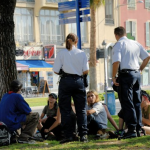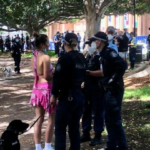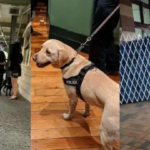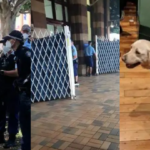NSW Police Force Falls Apart During Hearing of Strip Search Class Action
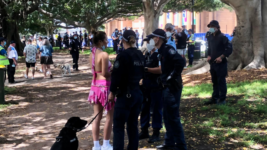
New South Wales Supreme Court Justice Dina Yehia was baffled by the manner in which the state’s police force approached the long-anticipated strip search class action, as it appears that the lawyers representing police took the same haphazard approach that officers take to strip searching people to defending the organisation in court.
During closing arguments on Thursday, 15 May 2025 her Honour remarked that the manner in which the New South Wales Police Force conceded at the last minute that the search of the main plaintiff had been unlawful, despite mountains of evidence produced to convey otherwise, was “of grave concern”, and that the asserted ‘defence’ that the search was “objectively necessary” even though illegal was perplexing, as this is not a defence at all.
No surprise
The idea the class action wasn’t going to be hailed a success back at the local copshop was no surprise, as from 2014 onwards increasing accounts have been appearing in the press regarding NSW police officers increasingly strip searching civilians, especially festivalgoers, in a very loose manner in terms of the vaguely worded statutory protocols involved, as they were obviously being breached.
The class action statement of claim was lodged with the NSW Supreme Court by the Redfern Legal Centre and Slater and Gordon on 21 July 2022, on behalf of chief plaintiff Raya Meredith and what turned out to be more than 3,000 other plaintiffs, who’d been subjected to one of the notorious NSW police strip searches at a festival from 2016 through to the time that the claim was lodged.
NSW police admitted that Meredith’s 20 July 2018 strip search at Splendour in the Grass was illegal a month prior to 5 May commencement date of proceedings, which was supposed to see the agency argue its case for about 20 days but it finished after just 4, as immediately prior to proceedings police pulled its 22 witnesses, mainly officers, who were set to argue against Meredith’s version of events.
A laissez faire approach
Justice Yehia told the courtroom on Thursday, 15 May, that the “matter… of grave concern” to her, according to The Guardian, was the fact that NSW police had performed a massive backflip in relation to the main incident the class action revolved around, despite the fact that its lawyers had provided three different versions of events that they’d been planning to progress before the court.
Meredith’s strip search involved multiple breaches of protocols, including that the then 27-year-old was asked to remove her tampon during the search, and that a male officer entered the makeshift tarpaulin tent while the search was taking place, while the woman had her pants and underwear removed, which is in direct contravention of the requirement that searching officers are same-sex.
On the first day of proceedings, 5 May, Meredith’s barrister Kylie Nomchong SC said her client had been subjected to assault, battery and false imprisonment during the 30-minute search. And she added that her client was then making an additional claim for aggravated damages, as while the police had admitted the search was illegal, for the two years prior they’d publicly denied her account.
Yet, despite having admitted that officers had carried out the strip search of Meredith in an illegal manner, NSW police continued to put it to the court that the search of her genital area was still “objectively necessary”, which counsel for the plaintiff labelled an “outrageous” claim.
“It is unbelievably offensive to assert, without any evidence whatsoever, that there was some objectively reasonable basis on the part of the searching officer to inspect the plaintiff’s vagina, to ask her to pull out her tampon, to ask her to bare her buttocks and anal area and to bend over and drop her breasts,” Nomchong told the court on 14 May. “It’s just offensive.”
Rules there to be broken
Part 4 division 4 of the Law Enforcement (Powers and Responsibilities) Act 2002 (NSW), which is commonly known as the LEPRA, contains the NSW police protocols relating to strip searches.
The broad prohibition against carrying out strip searches in places other than police stations, unless the “seriousness and urgency of the circumstances” make it “necessary”, under section 31 of the LEPRA, leaves many scratching their heads as to what it is about entering a music festival that makes it a must to conduct mass strip searches of punters, many of whom are just teens, prior to entry.
Section 32 of the LEPRA lists protocols aimed at preserving “privacy and dignity” of search subjects, however as the strip search class action statement of claim sets out, the makeshift tarpaulin cubicles that were supposed to provide both some discreetness and modesty for those being strip searched at the 2018 Splendour in the Grass festival provided nothing of the sort.
This section also stipulates that searching police officers must not search the genital area of the subject and only officers the same sex as the person being searched are allowed to be present.
The officers involved in the Meredith strip search, who were some of the witnesses set to testify before the NSW police reneged on its denial that the procedure had been applied unlawfully, also had a serious crack at breaching the search rules under section 33, which includes no inspection of body cavities or touching of the subject’s body, both of which the female officer carried out.
While in early April, when NSW police first admitted that the Meredith strip search was above and beyond the protocols in the LEPRA, it further set out that it had failed to seek the consent of all the festivalgoers it strip searched over the three days of the 2018 Splendour in the Grass festival, which is further required under section 34A of the LEPRA.
Awaiting damages
As the class action statement of claim sets out, Meredith was walking to the entrance of the festival, with a group of friends, when a NSW police officer with a dog on a leash approached them. The dog sniffed in Meredith’s direction, before moving on to consider some of her friends, however, moments later, the officer tapped her on the shoulder and said the dog had indicated her.
Nomchong questioned the validity of a sniffer dog indication amounting to a reasonable suspicion that would permit a police officer to conduct a search of a person, considering that NSW police documents note that drug dog indications only result in illicit substances being located on about 30 percent of occasions, which is a fact the NSW Ombudsman report into sniffer dogs noted in 2006.
In putting closing arguments to the NSW Supreme Court on Thursday on behalf of NSW police, Julian Sexton SC put it to the court that Meredith should not be awarded aggravated damages on the basis of the harm she’d been caused by having state law enforcement publicly deny her claims for the past two years, as she’d never been asked to testify to this point whilst she was on the stand.
With closing arguments having come to an end on Thursday afternoon, after four days of proceedings that had originally been thought would be at least 20 days long, the case came to a close, and now interested parties are awaiting the final findings of Justice Yehia.
“This trial is an important step in holding NSW police accountable for the degrading strip searches that thousands of festivalgoers were subjected to,” said Redfern Legal Centre senior police accountability solicitor Samantha Lee, ahead of the first day of proceedings on 5 May.
“For decades, people have been humiliated, intimidated, and often left traumatised by these experiences, with police officers abusing their powers,” one of the key advocates for strip search reform in this state continued.
“This isn’t just about music festivals — it’s about everyone’s rights and the need for police to follow the law. Strip searches should never have been allowed to become routine practice.”


